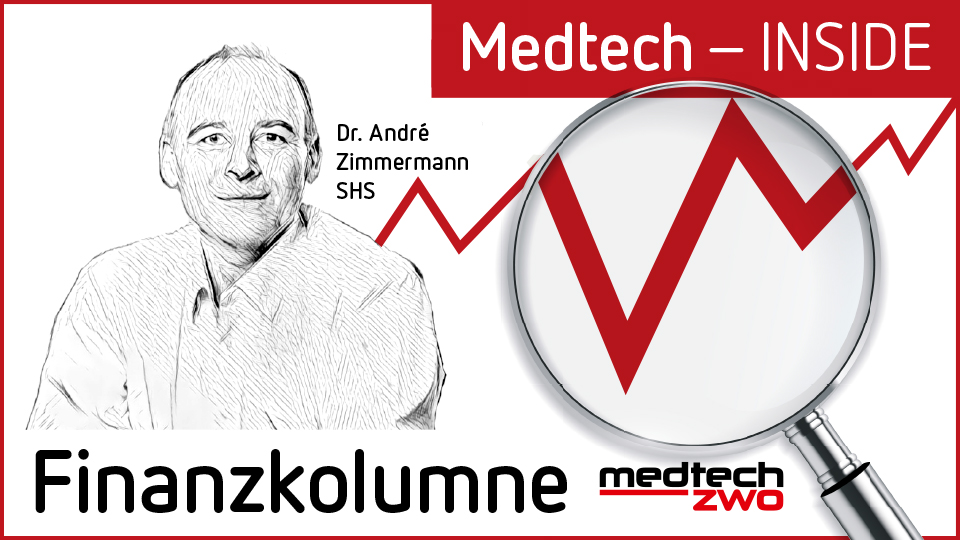medtech-INSIDE – financial column, part 1: “Medtech in transition: the tasks ahead”

Coronavirus, digitalisation, MDR, Brexit – companies in the medical technology sector face major, capital-intensive challenges. What is key at this stage?
By: Dr André Zimmermann, partner at Tübingen-based industry investor SHS. He has developed global connections in the medical technology sector as a business development expert.
Coronavirus takes its toll
It is autumn and, as expected, we find ourselves in another critical phase of the coronavirus pandemic. Germany has coped well to date, but we have to remain vigilant. After all, a second lockdown would have serious consequences for medtech manufacturers, especially if elective surgeries had to be postponed once again in order to maintain sufficient capacity to treat COVID patients. Another economic shutdown would hit medtech SMEs particularly hard.
MDR: three letters, one enormous task
The EU has postponed the application of the more stringent MDR (Medical Device Regulation) approval requirements to May 2021. This has given companies some breathing space. If the pandemic drags on, however, this new deadline may still have a big impact on small and mid-sized medtech manufacturers in particular. The MDR presents companies with major challenges – in terms of staffing and finances. The extra work involved will not be a one-off issue, either, but rather an ongoing burden. And speaking of approval, who can forget Brexit! By the looks of things, the CE mark will not suffice for the UK market. It is likely that the British will require separate approval for medical technology products from 2021. Products that have already been approved would then have to be re-authorised from 2023 onwards: an expensive headache for mid-sized companies in the European medtech industry.
Digitalisation – both an opportunity and an obstacle
This pandemic has already clearly shown the potential benefits of digital technology in the healthcare sector in areas such as tele-consulting, tele-monitoring and AI. A lot has happened, but further changes are still required. Business models will have to be adapted in order to remain competitive. New distribution channels will have to be created, while old ones will fall away. For the benefit of patients and the health system. Mid-sized medtech companies should actively use this digital transformation for investment – as the basis for future growth.
Support for medium-sized companies for what lies ahead
The coronavirus pandemic, digitalisation and changed approval requirements (EU MDR and Brexit) may push even established mid-sized medtech companies to their limits. Especially if international expansion (US, China) has to be energetically pursued at the same time in order to absorb rising costs. All of this requires a really good equity position. Companies need to find sustainable solutions in this regard. One possible option is to form partnerships with experienced medtech investors. The emphasis here is on collaboration – for the benefit of all parties. Overall, the healthcare market will continue to grow in the medium to long term, driven by the coronavirus and the changing age structure in many industrialised countries as well as increasing needs in emerging markets. Let’s seize the opportunities!
Note: Translation from German, the original article can be found here.
Picture source: medtech zwo